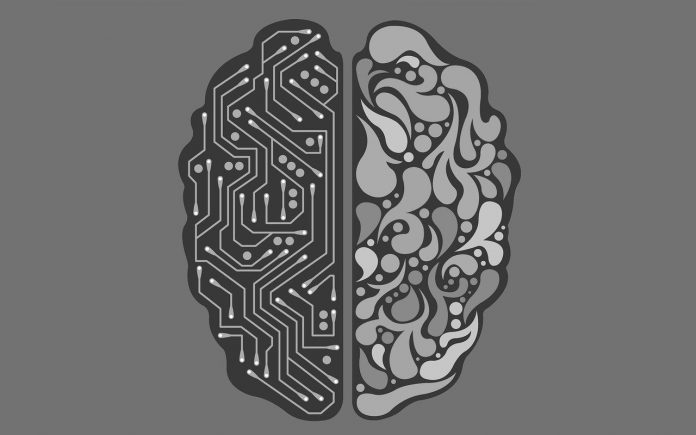In recent years, Artificial Intelligence (AI) has become the most talked-about technology thanks to the wide range of possibilities that it unveiled. Mobile app projects are increasingly utilizing AI technology for a wide number of use cases. When you create an app from scratch, knowing the possibilities of these technologies is a must.
From ensuring personalized user experience based on user behavior insights to making personalized product recommendations by a mobile commerce app, from AI-powered chatbot communication to powerful and intelligent mobile algorithms, AI is being utilized in a number of ways to create more value for the users.
How does a mobile app development company successfully use AI technology? In what ways are they incorporating AI into mobile apps? Let us answer these questions through this blog post.
Key Ways to Implement AI and ML Technologies in App Development
AI and its subset technology, Machine Learning (ML), are incorporated into mobile app projects primarily in three distinct ways such as intuitive reasoning, personalized recommendations, and behavioral adjustment. Let us explain these three ways.
Intuitive Reasoning
AI and ML technologies help mobile apps to make more powerful reasoning to solve problems to real-life user problems. For instance, the Uber cab booking app, by using AI-based reasoning and calculation, can easily guide drivers to take the least time-consuming route. This ultimately results in faster trip completion and lesser fuel consumption, benefiting both drivers and customers.
Personalized Recommendations
A mobile app, by understanding the specific user preferences and choices over time and by analyzing the cultural and demographic attributes, can make recommendations that are more likely to get a positive response from users. For example, Amazon mobile app can make product recommendations based upon customer browsing and buying habits, age, gender, and location. Similarly, Netflix and YouTube showcase media, movies, and videos based on browsing history and personal choices.
Behavioral Adjustment
Just by learning from the user’s in-app behavior, a mobile app can adjust security settings, showcase specific contents and reduce steps or friction in carrying out certain interactions. For example, a banking app by observing your frequently accessed transaction types can save similar transactions automatically for doing them faster in the future.
Impact of AI in mobile apps
Now that we have seen how AI can be incorporated into mobile apps, let us see here some impact of AI-driven apps in the life of app users.
Personalized user experience
The most significant impact of incorporating AI into the mobile application is personalized user experience. AI and ML technologies can make a mobile app learn about user identity, their likes and dislikes, their buying ability, their preferred critical terms for product search, etc.
Companies based upon such data-driven insights can personalize marketing messages to target individual customers and ensure better traction and enhanced business conversion.
Advanced search function
By using AI and Machine learning technologies, apps can also offer advanced search functions. For example, based upon your location, context, the season of the year, your cultural backdrop, past preferences, and other attributes, Airbnb can make personalized recommendations of places to stay that are more likely to match your taste, budget, and preferences.
Predicting user intent
One of the most crucial ways AI and machine learning help apps to deliver a better user and customer experience is by accurate prediction of user intent. Amazon understands your buying intent by analyzing your browsing patterns, previous searches, past purchase data, and personal information and accordingly showcases options that are more quickly to draw attention.
Increased relevance of ads
In-app ads from ad networks are increasingly becoming context-driven for each user because of the AI-driven insights. Machine Learning technology, by offering precise user insights regarding in-app behavior, is helping ads to appear more contextually for better visibility, engagement, and conversion.
Incorporating commercial ad content within the app content for driving contextual engagement is another area where AI and ML technologies are playing a great role. It is particularly evident in the case of game apps where ads appear in specific contexts to drive more engagement from players.
Enhancing app security
Apart from playing their roles behind effective marketing, both Artificial Intelligence and machine learning technologies are also paving the way for stronger security through intelligent app authentication. Intelligent security features like image recognition, face recognition, audio recognition, and biometric data recognition are helping apps to ensure the strongest authentication measures.
No wonder some security-specific apps such as ZoOm Login and BioID made considerable investments in ML and AI technologies for creating security locks based upon biometric data. Some security apps have even gone further to introduce periocular vision detection for eyes to get over the chances of identifying similar faces.
Face recognition for years has remained at the forefront of mobile authentication. Now thanks to AI and ML technologies, this authentication has further advanced to make face detection easier than ever before. Detection of facial features through apps is also helping now doctors and medical professionals evaluate their patients’ condition.
Awesome fraud control
Since fraudulent activities, data tampering, data breaches, and identity theft are increasingly common for digital platforms, apps need to guard against such security lapses. The AI and ML technologies have already shown exceptional promise in detecting anomalies and irregularities as preliminary signs of fraudulent activities.
In the case of financial apps and transaction savvy e-commerce and mobile commerce apps, the AI and ML-powered security measures have nearly made it impossible for fraudulent transactions and data theft to take place because of this ability to detect and track irregularities at the early stage.
Conclusion
For AI and ML technologies, the journey has just begun with mobile app projects. These technologies have immense potential to transform the mobile user experience with intuitive automation. Proverbially speaking, these capabilities represent just the tip of the iceberg.


































